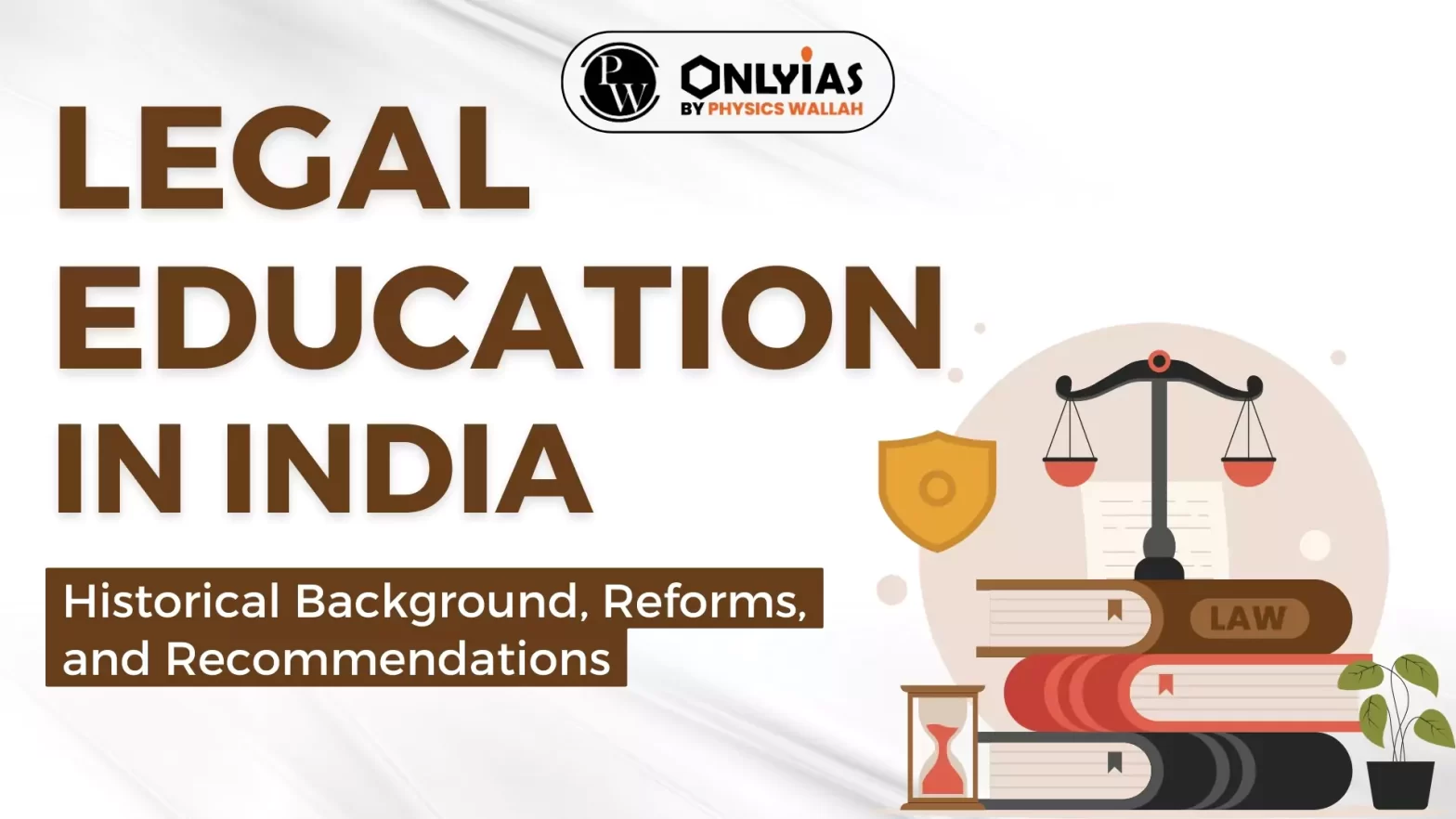Context:
This editorial is based on the news “An intervention that will help strengthen legal education in India” which was published in the Hindu. Recently, the Parliamentary Standing Committee on Personnel, Public Grievances, Law, and Justice submitted a significant report on legal education in India.
Legal Education in India: Historical Background
- Establishment of University: In the 1990s with the advent of the national law universities (NLUs), the focus on legal education was started in India.
- LPG Reforms: With the advent of liberalization and globalization, the Indian economy in the 1990s threw up many new opportunities for lawyers, which, in turn, led to bright young students opting to study law right after school.
- Job Opportunities: Several NLU graduates got placed in high-paying law firm jobs.
- Many others went abroad to study at top universities, with quite a few bagging prestigious scholarships.
- Challenges: Hundreds of other law schools nationwide don’t represent the same success as NLU.
- Most of the NLUs too have failed to emerge as centers of excellence in legal research.
- Only two Indian law schools, Jindal Global Law School and National Law School of India University, figure in the QS rankings of the top 250 law schools worldwide.
Parliamentary Standing Committee Recommendations On Legal Education In India
- Limiting the Power: The committee recommended limiting the powers of the Bar Council of India (BCI) to regulate legal education in India.
- On Litigation: Several facets of legal education, especially at the post-graduation level, do not pertain to litigation. The committee recommended the establishment of an independent body called the National Council for Legal Education and Research (NCLER).
- Aim: It will develop qualitative benchmarks to regulate legal education.
- Composition: Judges, practicing lawyers and eminent law professors with an unimpeachable track record of research and serving legal education.
- Bolstering Research: The committee emphasizes the need to prioritize and promote research, which will lead to better teaching outcomes and help students develop a critical perspective.
- State Funding: The committee acknowledged the need for increased state funding for bolstering Research.
- Globally Competitive: The committee recommended developing and delivering a global curriculum, promoting student and faculty international exchange programmes, incorporating more international law courses and increasing students’ exposure to different legal systems.
- On the Leadership Positions: It should be held by passionate, charismatic, and visionary academicians who inspire and create an enabling and supportive environment.
- To Boost the Culture of Legal Research: In law schools, there should be complete academic freedom and autonomy. A law school or any other academic institution can accomplish a goal only if academicians are free to offer their well-researched views without any fear.
Conclusion
The parliamentary committee’s intervention is a welcome development, and one expects all stakeholders to work together to improve the quality of legal education in India.
Also Read: Supreme Court Declared Electoral Bond Scheme Unconstitutional
![]() 16 Feb 2024
16 Feb 2024
